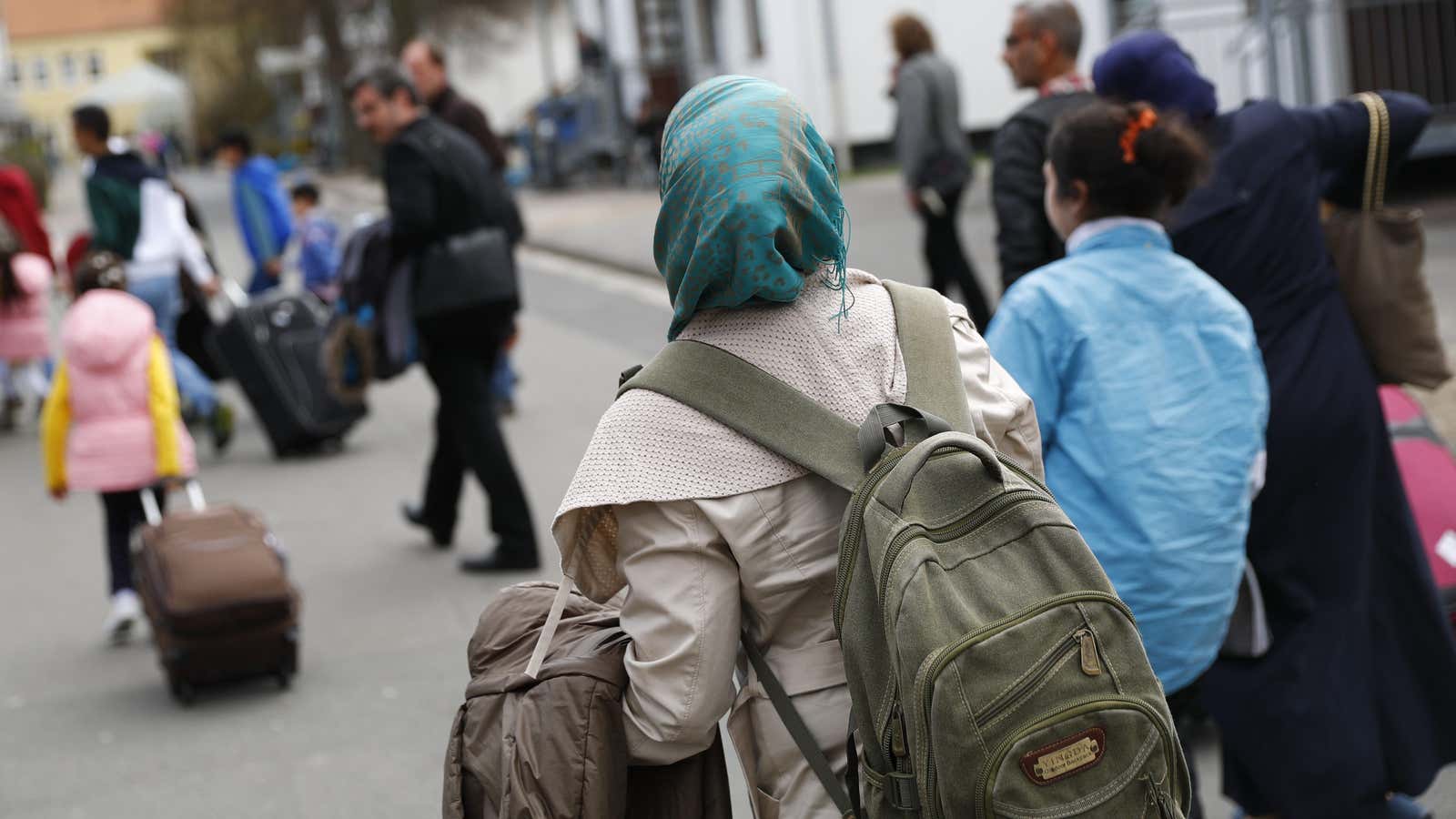Germany is offering thousands of euros to rejected asylum seekers who voluntarily return home.
The scheme, which the government has dubbed “Your country. Your future. Now!” will run until February next year. Individual migrants can receive up to €1,000 ($1,185) if they voluntarily return home, while families can receive up to €3,000 to do the same. The assistance is meant to help reintegrate rejected asylum seekers in their home countries. The refugees, which were unsuccessful in their applications, could also get subsidized housing for a year—to help pay rent, home renovations, or get basic equipment for a kitchen or a bathroom.
At the height of the refugee crisis in 2015, chancellor Angela Merkel vowed to deport rejected asylum seekers with “a friendly face.” In practice, this means promoting voluntary return. As well as cash incentives and subsidized housing, rejected asylum seekers could also receive financial travel assistance and one-time financial start-up help. The government is also pointing rejected asylum seekers to so-called “counseling centers,” where they can receive support and advice.
Some 1.6 million people sought asylum in Germany at the end of 2016, according to Federal Statistical Office of Germany. Since 2014, the number of asylum seekers increased by 851,000 (a 113% jump). At the end of 2016, 872,000 asylum seekers (54%) had a humanitarian residence permit and therefore had their asylum application accepted. But for most accepted asylum seekers (600,000), this recognition was only temporary. Germany rejected the asylum claim of 158,000 people in 2016.
Germany is much quicker at processing asylum claims than its neighbors. In fact, Germany had processed more asylum claims (link in German) in the first half of 2017 than in all other 27 European Union countries combined. The vast majority of asylum applicants originated from Syria (455,000 asylum seekers). Asylum seekers from Afghanistan and Iraq rounded up the top three countries of origin.
Thus far, only 8,639 (paywall) migrants took part in the government’s return program between February and October this year. Germany deported a record 80,000 rejected asylum seekers last year. Merkel’s chief of staff, Peter Altmaier, promised this would be followed with another record high in deportations this year.
